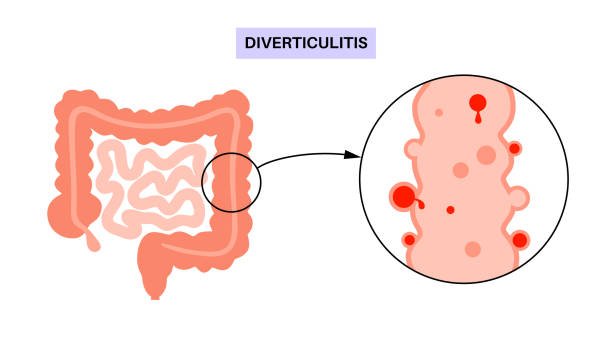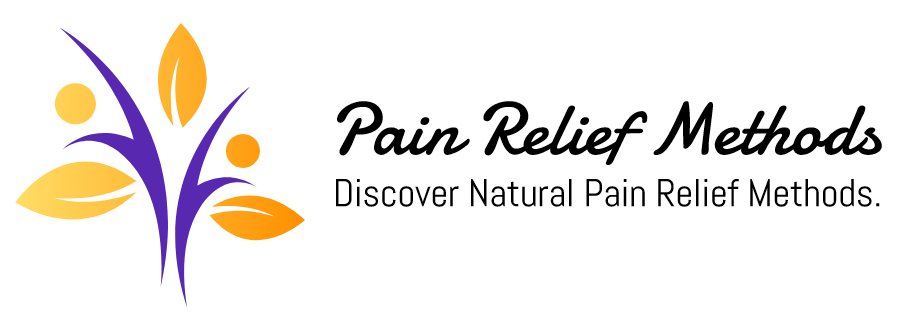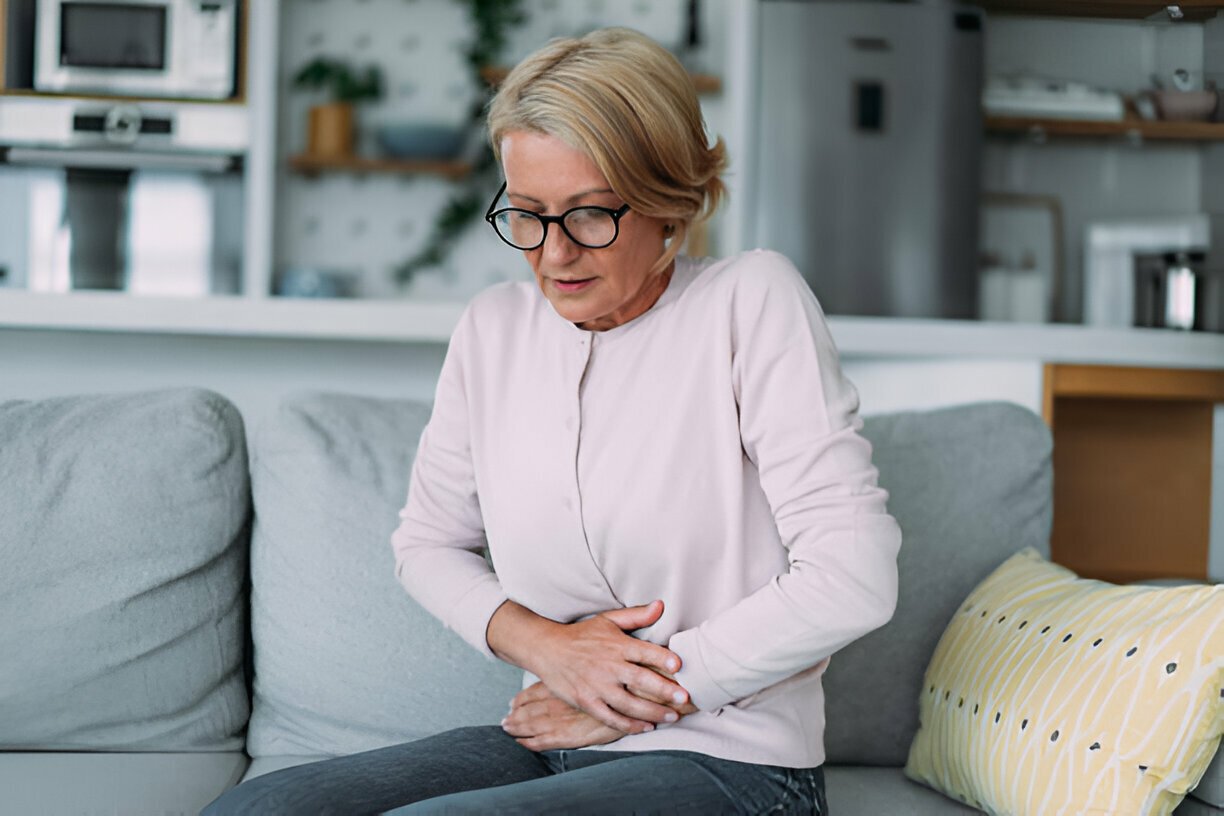Table of Contents
What Causes Lower Abdominal Pain In Older Females?
Introduction
Lower abdominal pain can be a cause for concern at any age, but for older females, it can be particularly worrisome. While some causes might be similar to those experienced by younger women, there are also age-related factors to consider. This article delves into the potential reasons behind lower abdominal pain in older females and guides you on when to see a doctor.
Common Causes Of Lower Abdominal Pain In Older Females
The lower abdomen houses the intestines, bladder, reproductive organs, and other structures. Pain in this area can arise from various issues affecting these organs. Here’s a breakdown of some common culprits, considering the unique factors that may affect older women:
-
Digestive Issues:
-
Constipation:
This is a frequent concern, especially with decreased mobility or certain medications. Straining to pass stool can cause pain and discomfort in the lower abdomen.
-
Diverticulitis:
Small pouches in the colon (diverticula) can become inflamed, leading to severe pain, typically in the lower left abdomen. This is more common in older adults.
-

-
Urinary Tract Issues:
-
Urinary Tract Infections (UTIs):
UTIs, especially bladder infections, can cause pain or burning sensation in the lower abdomen, along with frequent urination and urgency. UTIs might be more frequent in older women due to changes in the urinary system.
-
Stress Incontinence:
Involuntary leakage of urine with coughing, laughing, or exercise can cause irritation and discomfort in the lower abdomen.
-
-
Reproductive Issues:
-
Endometriosis:
Tissue similar to the uterine lining growing outside the uterus can cause pelvic pain, which can sometimes radiate to the lower abdomen. Pain may worsen during menstruation, though periods may become lighter or even cease with age.
-
Vaginal Atrophy:
Thinning and inflammation of the vaginal tissues due to decreased estrogen levels after menopause can cause discomfort during intercourse and sometimes a general ache in the lower abdomen.
-
Uterine Fibroids:
Noncancerous growths in the uterus can cause cramping, pelvic pressure, and pain during intercourse. These are more common in women approaching menopause.
-
-
Other Causes:
-
Hiatal Hernia:
Part of the stomach pushes through the diaphragm into the chest cavity, which can cause heartburn and discomfort that may be felt in the lower abdomen.
-
Shingles:
This viral infection can cause a burning rash, sometimes accompanied by pain in the area where the rash appears, which can occasionally be the lower abdomen.
-
Age-Related Considerations
As women age, their bodies undergo hormonal changes, and certain conditions become more prevalent. Here’s how age can influence lower abdominal pain:
-
Weakened Pelvic Floor Muscles:
With age, pelvic floor muscles that support the bladder, uterus, and intestines can weaken, leading to urinary incontinence or pelvic organ prolapse (displacement of organs from their original position), which can cause lower abdominal discomfort.
-
Reduced Estrogen Levels:
After menopause, decreased estrogen levels can contribute to vaginal atrophy, UTIs, and potentially worsen endometriosis symptoms.
When To See A Doctor
Don’t hesitate to seek medical attention if you experience any of the following alongside lower abdominal pain:
- Severe or worsening pain
- Persistent pain lasting more than a few days
- Fever
- Nausea and vomiting
- Blood in the stool
- Difficulty urinating
- Vaginal bleeding after menopause
- Urinary incontinence that is new or worsens
Early diagnosis and treatment are crucial for managing underlying conditions and preventing complications.
Additional Tips For Managing Lower Abdominal Pain
Here are some tips that may help manage lower abdominal pain in older females:
-
Maintain A Healthy Weight:
Excess weight can put strain on the pelvic floor muscles and worsen pain.
-
Stay Hydrated:
Drinking plenty of fluids helps prevent constipation and UTIs.
-
Kegel Exercises:
Strengthening pelvic floor muscles can improve bladder control and potentially reduce pelvic pain.
-
Manage Stress:
Stress can exacerbate digestive issues and worsen pain perception.
-
Open Communication With Your Doctor:
Discuss your symptoms and any concerns you have about lower abdominal pain.
FAQs
-
Can Medications Cause Lower Abdominal Pain In Older Women?
Yes, certain medications can cause side effects like constipation or stomach upset, leading to lower abdominal pain. It’s important to review your medications with your doctor to identify potential culprits.
-
Should I Be Worried About Occasional Sharp Pain In My Lower Abdomen?
Occasional sharp pain could be caused by gas or indigestion. However, if the pain is severe, persistent, or accompanied by other symptoms, consult a doctor to rule out more serious causes.
-
What Tests Might A Doctor Perform For Lower Abdominal Pain?
Depending on the suspected cause, your doctor might recommend blood tests, urine tests, stool tests, imaging scans (ultrasound, CT scan), or a pelvic exam.
-
Are There Hormonal Therapies That Can Help With Lower Abdominal Pain?
Hormone replacement therapy (HRT) after menopause can help alleviate symptoms like vaginal atrophy and potentially improve urinary tract health, reducing discomfort. However, HRT is not suitable for everyone, and it’s crucial to discuss the risks and benefits with your doctor.
-
What Dietary Changes Can Help With Lower Abdominal Pain In Older Women?
-
Increase Fiber Intake:
Aim for fruits, vegetables, and whole grains to promote regular bowel movements and prevent constipation.
-
Manage Fluid Intake:
Drink plenty of water throughout the day, but avoid excessive fluids before bedtime if you experience nighttime urgency.
-
Limit Irritants:
Reduce spicy, acidic, or greasy foods that can trigger heartburn or indigestion.
-
Consider A Probiotic Supplement:
Probiotics may be helpful for some digestive issues, but consult your doctor before starting any supplements.
Conclusion
Lower abdominal pain in older females can arise from various causes, some related to the natural aging process and others requiring medical attention. By understanding potential culprits, recognizing warning signs, and adopting healthy lifestyle practices, you can manage your well-being and seek professional help when necessary. Remember, this article provides general information, and consulting a healthcare professional is essential for proper diagnosis and personalized treatment plans.
References
- Office on Women’s Health: https://www.mayoclinic.org/diseases-conditions/vaginal-atrophy/symptoms-causes/syc-20352288
- National Institute of Diabetes and Digestive and Kidney Diseases: https://www.niddk.nih.gov/about-niddk/offices-divisions/division-digestive-diseases-nutrition
- Urology Care Foundation: http://www.urologyhealth.org/
Discover more from Pain Relief Methods
Subscribe to get the latest posts sent to your email.

